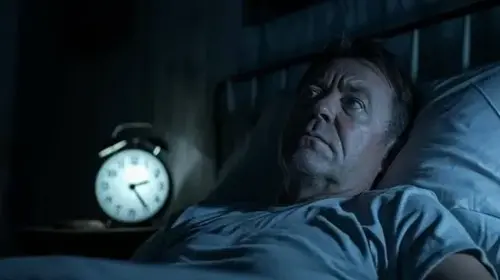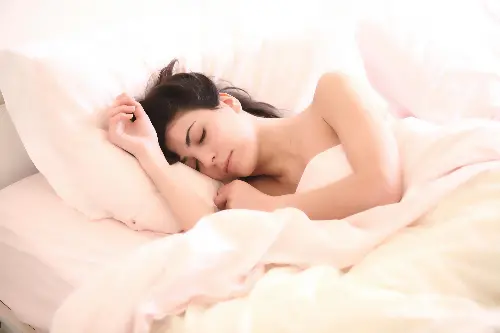
Getting older brings many changes—unfortunately, disrupted sleep is often one of them. Many seniors struggle with falling asleep, waking up frequently and feeling less rested overall, but what if the solution was as simple as adjusting light exposure?
A new groundbreaking study from the University of Surrey, published in GeroScience, suggested that the timing of light exposure plays a crucial role in sleep quality for older adults. Researchers found that morning exposure to blue-enriched light can enhance sleep and daily activity, while the same light in the evening can have the opposite effect.
The science behind light and sleep
As we age, our eyes naturally change—the lens yellows, pupils shrink, and we lose some light-sensitive photoreceptor cells. These changes reduce the amount of light, especially blue wavelengths (420-480 nm), that reach the brain’s master clock in the hypothalamus.

Since blue light helps regulate our body’s internal clock, its reduced presence can lead to weaker sleep-wake cycles. Additionally, many seniors spend less time outdoors and more time exposed to artificial light in the evenings, further disrupting their sleep patterns.
The study: How light exposure affects sleep
The researchers recruited 36 adults over the age of 60, all of whom reported sleep issues. Over an 11-week period, participants followed a strict protocol:
- They used blue-enriched white light (17,000K) or standard white light (4,000K) for two hours in the morning and evening.
- They alternated between these light conditions with two-week breaks in between.
- They wore activity monitors and light sensors to track movement, light exposure, and sleep patterns.
- Sleep diaries and melatonin level tests were also used to assess the impact of light exposure.
The results: Morning light helps, evening light hurts
The study revealed the following key findings:
- Morning exposure to blue-enriched light improved sleep stability and reduced nighttime wake-ups.
- Evening exposure to blue light disrupted sleep, making it harder to fall asleep and reducing sleep quality.
- Participants who spent more time in bright natural light (above 2,500 lux) had stronger daily rhythms and earlier bedtimes.
- Women had more variable activity patterns throughout the day than men.
- Those who napped more had weaker daily rhythms and were less active overall.
Practical tips for better sleep
The good news? These findings suggest simple, non-medication solutions for improving sleep in older adults:
- Increase morning blue-light exposure: Use a lightbox or spend time outdoors after waking up.
- Reduce blue-light exposure in the evening: Dim indoor lighting and avoid screens before bedtime.
- Maintain a consistent schedule: Establishing morning and evening routines can further support healthy sleep patterns.
A new approach to sleep health
Study author Daan Van Der Veen emphasised, “Carefully timed light exposure can be a powerful tool for improving sleep and activity levels in older adults.” This approach is not just for those in assisted living—it is effective for healthy, independent seniors as well.

As populations continue to age, optimising light exposure could become a key strategy for promoting better sleep and overall well-being. With simple adjustments, seniors can reclaim restful sleep—one morning sunrise at a time.
Note to readers: This article is for informational purposes only and not a substitute for professional medical advice. Always seek the advice of your doctor with any questions about a medical condition.
